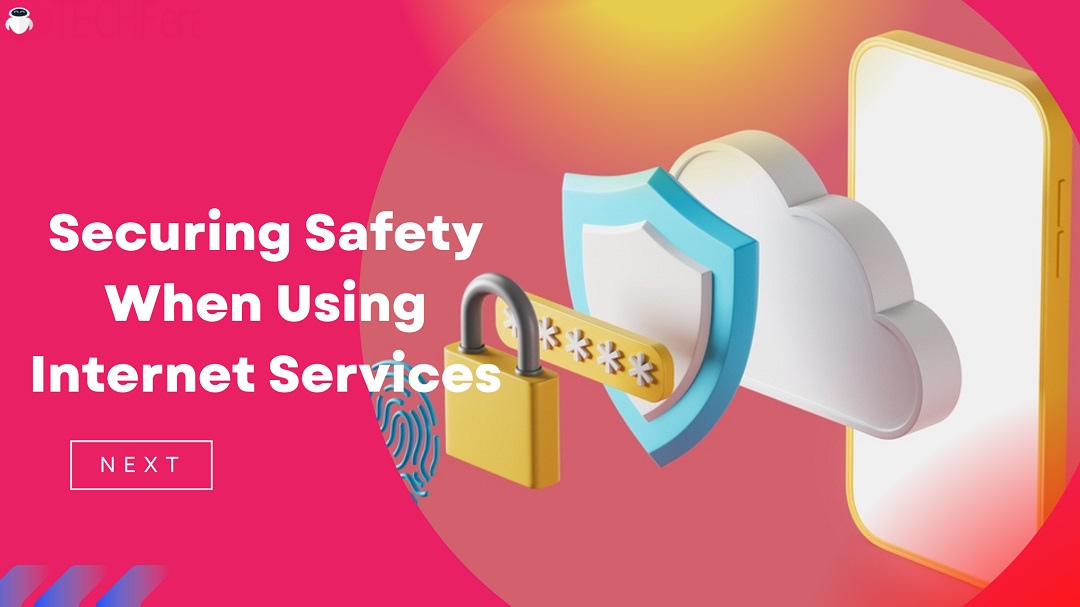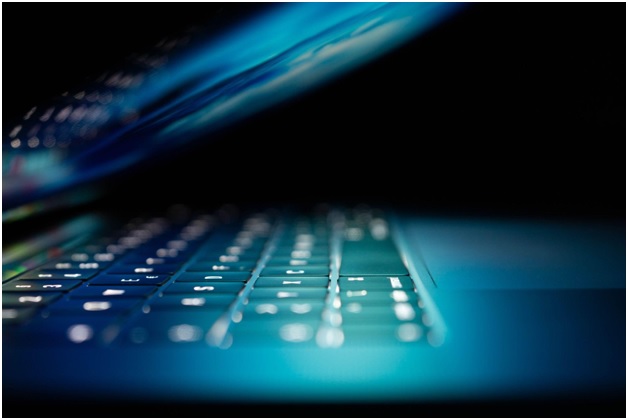
Last updated on : April 21st, 2023 by R Yadav
With the widespread use of the internet, it is important to take steps to ensure that users are safe when using online services.
Whether you are browsing the web, shopping online, or engaging in social media activities, there are several measures everyone should take to protect their privacy and secure their data.

From setting strong passwords and enabling two-factor authentication to avoid phishing scams and being aware of malicious links, understanding how to stay safe on the internet can help keep your information secure.
Let’s have a look at some of these safety practices so that you can have peace of mind while navigating through cyberspace.
Passwords are an essential element when it comes to keeping online accounts safe.
Strong passwords should contain a combination of at least eight lowercase and uppercase letters, numbers, and symbols. It is also important to avoid using the same password for multiple accounts and to avoid common words or phrases that can easily be guessed.
You should create passwords that are long enough so that they cannot be easily cracked by malicious actors.
Malicious actors are those who use malicious software, or malware, to gain unauthorized access to computers and networks.
These threats can come in the form of viruses, ransomware, spyware, Trojans, and other malicious programs.
Malicious actors have been known to steal sensitive data such as credit card numbers and login credentials.
They may also use malicious software to gain access to personal or corporate networks, allowing them to modify or delete data without authorization.
It’s important for users to be aware of these threats and take steps to protect themselves from them.
Two-factor authentication is an important security measure that can help protect users from malicious actors.
This is a system whereby users are required to provide two pieces of information, such as a password and code sent via text message or email, before being granted access to their accounts.
This helps ensure that hackers cannot gain access even if they have the correct password, as they would also need a second form of authentication.
Authentication is an important security measure for ensuring the safety of online services and users.
Two-factor authentication, in particular, is a system that requires users to provide two forms of identification - such as a password and code sent via text message or email - before being granted access to their accounts.
Phishing scams are a type of cyberattack where malicious actors attempt to trick users into revealing sensitive information or downloading malicious software.
Malicious actors often use emails and websites that look legitimate but are actually counterfeit copies created to steal data such as login credentials and credit card numbers.
To protect against phishing attacks, it is important to be aware of any suspicious emails or websites and to never provide personal information unless you are certain it is safe to do so.
Personal information is among the most valuable types of data that malicious actors can obtain.
It is important to be aware that personal information can include a variety of sensitive data such as your name, address, phone number, date of birth, social security number, credit card numbers, and bank account information.
Another way malicious actors can gain access to user data is through malicious links.
These are links that have been created with the intent of stealing sensitive information or downloading malicious software
The threat of malicious actors and cyberattacks is a growing concern for many individuals and organizations.
It is important to take proactive measures to protect against these threats in order to keep your data secure.
One way to do this is by setting strong passwords that are hard to guess, enabling two-factor authentication for accounts, avoiding phishing scams, and being aware of malicious links.
Taking these simple steps can help protect your data and keep it safe from malicious actors.
One of the most effective measures that can be taken to protect against malicious actors and cyberattacks is the installation of robust security software.
Security software helps to detect and quarantine malicious programs, as well as alert the user if a malicious program has been found.
It can help to block websites that contain malicious content and help users identify phishing scams.
It is also important to ensure that security software and patches are kept up to date.
As malicious actors continue to evolve their tactics, frequent updates are necessary in order to keep the system secure.
Regular scans should be performed to detect any potential threats and take action accordingly.
Another way to protect against malicious actors and cyberattacks is through the use of email protection software.
This type of software is designed to provide a comprehensive layer of security that can detect and stop malicious content from entering an inbox.
It will scan incoming emails for any threats such as phishing attempts, viruses, ransomware, or other malicious code.
It can also detect suspicious links and attachments, which can help prevent users from unknowingly downloading dangerous content.
Email protection software can be a valuable tool for safeguarding against malicious actors.
It is important to select a product that matches specific needs, as well as keep it updated with the latest security patches in order to ensure maximum protection.
In addition to the measures mentioned above, it is important to use encrypted connections whenever possible.
Encryption is a process that encodes and scrambles data, making it difficult for malicious actors to access or interpret sensitive information.
This can be beneficial when accessing websites or sharing data over the internet, as it helps protect against eavesdropping and other forms of cybercrime.
When transmitting sensitive data, it is important to use an encrypted connection as this can help protect against malicious actors who may be trying to access the data.
Using a secure website that features HTTPS encryption can help ensure that all information transmitted over the internet is done so securely.
It is essential for individuals and organizations to take proactive measures to protect against malicious actors and cyberattacks.
This can be done by setting strong passwords, enabling two-factor authentication, avoiding phishing scams, being aware of malicious links, installing security software and patches, and using email protection software as well as encrypted connections when possible.
By taking these steps you will ensure that your data remains secure from any attempted breaches or attacks.
With the right precautions in place, you can rest assured knowing that your personal information is safe from malicious actors.
Read Also: Smart Solutions For Business Inventory